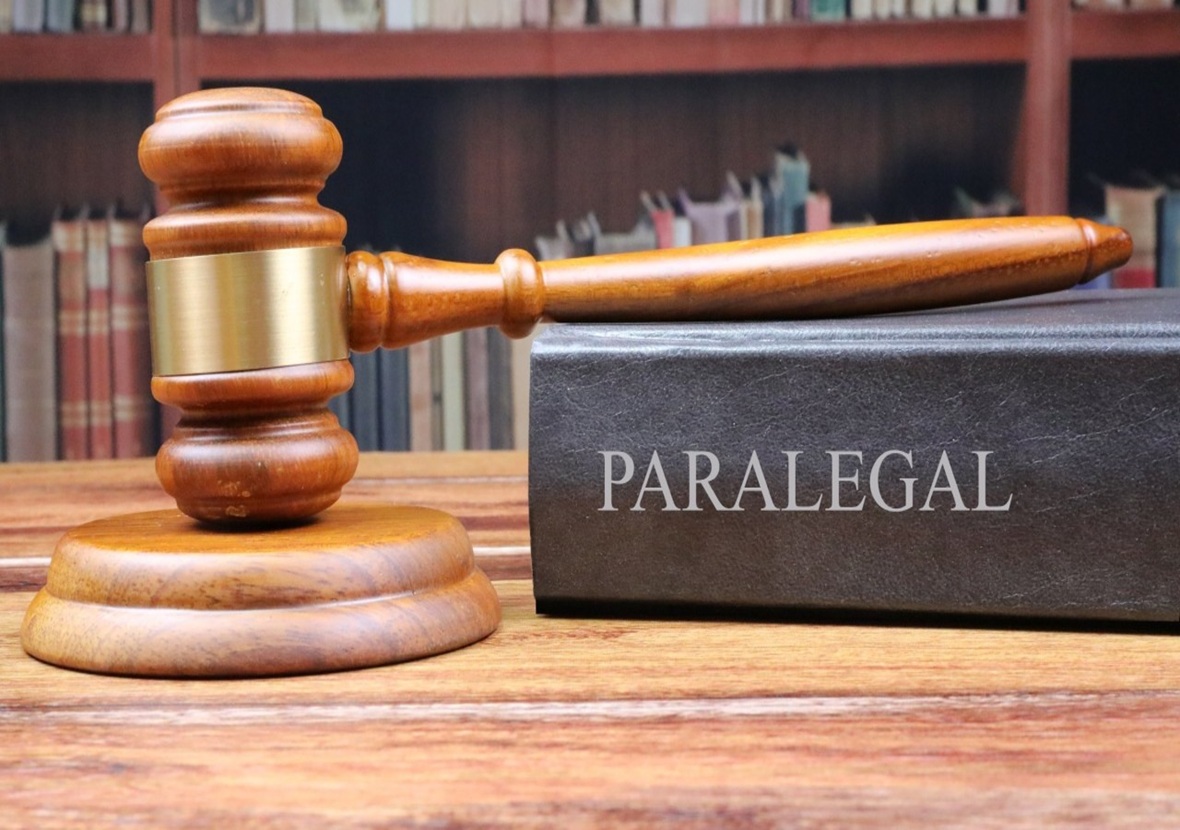Working at Sea? What a Maritime Lawyer Can Do for You
A career at sea may be both fulfilling and challenging. Life on the water has its own set of difficulties, whether you work as a deckhand on a cargo ship, for a cruise line, or on an offshore oil rig. Seafarers endure personal and legal challenges that are frequently significantly different from those faced by land-based workers because of their extended absences from home, difficult working circumstances, and possible dangers of injury. A maritime lawyer can help with that. These attorneys play a crucial role in defending the rights of persons who labor at sea and are experts in maritime law, commonly referred to as admiralty law.
Understanding Maritime Law
Legal matters that occur on navigable waterways are governed by maritime law. This covers everything, from environmental rules and ship damage to maritime contracts and marine navigation. A specialized area of law, maritime law is influenced by both international agreements and federal laws in the United States, including the Jones Act and the Longshore and Harbor Workers’ Compensation Act (LHWCA).
Maritime law differs greatly from ordinary employment or personal injury law due to its intricacy. It may include several jurisdictions and frequently intersects with both criminal and civil law. Having a lawyer who is aware of these nuances is essential for maritime workers, particularly in the event of a personal injury or legal issue.
The Role of a Maritime Lawyer
A maritime lawyer serves as both an advisor and an advocate for clients who work on or near the water. Their duties can range from negotiating contracts and handling workers’ compensation claims to representing clients in court. These lawyers often work with individuals such as merchant mariners, dock workers, cruise ship employees, and commercial fishermen.
One of their most important roles is helping injured maritime workers receive the compensation they deserve. Because maritime law provides specific protections and remedies that differ from land-based laws, a general personal injury attorney may not be able to secure a favorable outcome. Maritime lawyers are familiar with the legal precedents, federal acts, and procedural rules that govern injuries at sea, which allows them to build stronger cases for their clients.
Legal Protections for Maritime Workers
Several laws exist specifically to protect the rights and safety of maritime workers. One of the most significant is the Jones Act, which allows seamen injured on the job to sue their employers for negligence. Unlike typical workers’ compensation, which usually doesn’t allow for lawsuits against employers, the Jones Act opens the door to legal action when an employer fails to maintain a reasonably safe work environment.
Another important statute is the Longshore and Harbor Workers’ Compensation Act. This act provides compensation and medical care for maritime workers who are not classified as seamen but still work near navigable waters—such as longshoremen, harbor workers, and shipbuilders. It also offers protection to certain workers on oil rigs and other offshore installations.
Understanding which law applies to your situation is not always straightforward. A maritime lawyer can determine the appropriate legal path and ensure that your rights are upheld.
Injury Claims and Compensation
Getting injured while working at sea can have devastating consequences. Not only can the physical recovery be long and painful, but the financial burden can be overwhelming. Maritime lawyers assist injured workers in filing claims to cover medical expenses, lost wages, pain and suffering, and future loss of earning capacity.
Under maritime law, you may also be entitled to “maintenance and cure.” This is a doctrine that obligates employers to cover an injured seaman’s living expenses (maintenance) and medical care (cure) until maximum medical improvement is reached. Even if the injury was not caused by employer negligence, seamen are generally entitled to these benefits.
However, employers and insurance companies may try to limit payouts or deny claims altogether. That’s why having a knowledgeable maritime lawyer on your side is crucial. They can collect evidence, interview witnesses, consult medical experts, and present a compelling case on your behalf.
Death on the High Seas
Tragically, maritime work can sometimes result in fatal accidents. When this occurs, the Death on the High Seas Act (DOHSA) may come into play. This law allows the family of a deceased maritime worker to pursue compensation for their loss if the death occurred more than three nautical miles from the U.S. shore and was due to negligence or unseaworthiness.
A maritime lawyer can assist grieving families in filing a DOHSA claim and seeking damages for loss of financial support, funeral expenses, and emotional suffering. They also help determine whether other legal remedies may be available, depending on where and how the accident occurred.
Contract Disputes and Wage Claims
Maritime lawyers don’t just handle injury cases. They also deal with a wide range of employment-related disputes, including issues surrounding contracts and unpaid wages. Because maritime employment often involves international travel and work under foreign-flagged vessels, determining legal jurisdiction and contract validity can be difficult.
Seafarers are entitled to timely payment of wages, fair working conditions, and proper repatriation when their employment ends. When employers fail to honor their contractual obligations, a maritime attorney can help resolve the dispute through negotiation or legal action. They can also assist in interpreting and enforcing collective bargaining agreements for unionized maritime workers.
Cruise Ship Injuries and Passenger Claims
While much of maritime law focuses on the rights of employees, passengers on cruise ships may also require legal assistance in the event of an injury, illness, or other incident during their voyage. Cruise lines have their own contracts of carriage, which often include limitations on where and how passengers can file lawsuits.
A maritime lawyer can evaluate the circumstances of a cruise ship injury, determine whether negligence or unsafe conditions played a role, and file the appropriate claims against the cruise line. They are familiar with the time-sensitive nature of these claims—many cruise lines require that a lawsuit be filed within a year of the incident.
This area of practice is particularly important given the increasing popularity of cruise vacations and the wide range of accidents that can occur, from slip-and-fall injuries to food poisoning or even shipboard crimes.
Environmental and Regulatory Compliance
Maritime lawyers may also represent shipping companies, oil companies, and other maritime employers in matters related to environmental regulations and compliance. These legal professionals ensure that businesses follow laws governing pollution, waste disposal, ballast water management, and endangered species protection.
In cases where companies are accused of environmental violations, such as oil spills or illegal dumping, maritime lawyers defend their clients in court or in administrative hearings. They may also help companies develop compliance programs and conduct internal investigations to mitigate legal risks.
While this aspect of maritime law may not directly impact individual seafarers, it plays a significant role in shaping the conditions under which maritime employees work.
What to Look for in a Maritime Lawyer
Not all lawyers are equipped to handle maritime cases. When choosing a maritime lawyer, experience and specialization are key. Look for someone who has a proven track record with cases similar to yours, and who understands the unique challenges of maritime employment.
Effective maritime lawyers often come with a network of medical professionals, accident reconstruction experts, and investigators who can help build a solid case. They should also have experience dealing with shipping companies, insurance providers, and maritime employers.
Another important consideration is location. While many maritime laws are federal, working with a lawyer who practices in a coastal state or port city can offer strategic advantages. These attorneys are often more familiar with the local courts and judges who handle maritime claims.
How to Get Started With a Maritime Lawyer
If you’ve been injured while working at sea or are involved in a maritime legal dispute, it’s important to seek legal advice as soon as possible. Many maritime cases are subject to strict deadlines, and missing these can jeopardize your claim.
Start by scheduling a consultation with a maritime attorney. Many offer free initial consultations and will evaluate the strengths of your case without upfront payment. Be prepared to provide documentation, including employment contracts, medical records, witness statements, and photos of the incident if available.
The lawyer will review your situation, explain your legal options, and outline the next steps. If you decide to move forward, they will handle the legal paperwork, communicate with opposing parties, and represent your interests throughout the process.
https://usfonts.link/how-guardianship-rights-work-in-different-situations/
Conclusion
Although living at sea provides chances for travel, adventure, and fulfilling careers, it also carries significant risks and complicated legal issues. Working with an experienced marine lawyer can be quite beneficial when it comes to navigating the complicated legal system, gaining just compensation, and defending your rights because maritime law is a very specialized topic.
Being aware of your legal rights is essential, regardless of your level of experience in the maritime sector. A maritime attorney may help you proactively prevent issues through appropriate contracts and compliance, in addition to assisting you in responding to legal challenges after they occur.
Don’t wait for a disaster to happen if you work at sea. Verify the benefits of hiring a maritime attorney and how their assistance can protect your means of subsistence.














